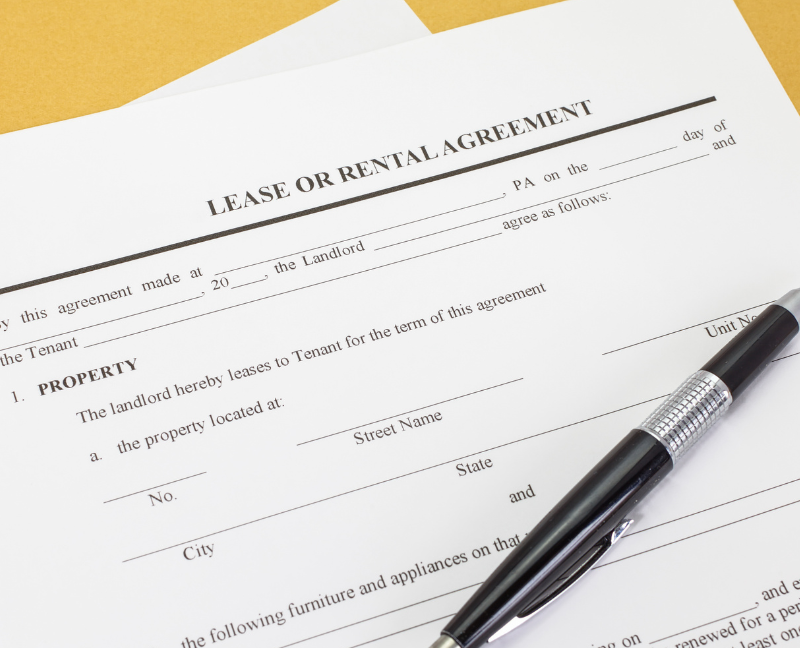Whether you want extra money or more property, renting out your house might be a good start. While renting your home may seem like a fun career, you might want to know that the landlord has many responsibilities.
This is the first thing you should understand before investing in rental property and earning revenue.
In this post, we'll know:
- what to do to rent out a house
- when to rent out your house
- and the advantages and downsides of renting a home
This will help determine if renting and managing properties is good for you.
What To Do To Rent Out A House?
Before listing a home, here are the things you need to do first:
- Know The Local Tenant-Landlord Laws
State regulations vary on security deposits, eviction notices, rental applications, and lease terms. Be sure to follow your state's landlord-tenant laws before renting a home.
Find out what the Fair Housing Act and equal opportunity housing legislation mean and contact your local housing authority. These regulations protect you against discrimination when renting or purchasing a property.
- Look Over Your Rental Property
You should check your rental property's construction codes. These rules create safe, habitable homes for tenants.
Before considering when to rent out your house:
- Check for any issues.
- Replace doors and windows, fix a dishwasher, or increase property security.
- Curb appeal and landscaping may also be necessary to landlords because curb appeal might impress potential tenants visiting the home before signing a lease.
- Get Purchasing Landlord Insurance
Landlord insurance is beneficial in many ways, such as when covering:
- physical damages to your property caused by bad weather, fire, or even a break-in and/or other criminal activities
- any physical injury while visiting your home or living in it
- fire, tornado, or other damages that stop you from renting the property out
- Estimate The Cost Of Your Rental
Setting a fair rent is another crucial step when renting out your house. To earn from renting the house:
- Set a price greater than your expenses—research local comparable rental homes before pricing.
- Make sure your price is competitive with comparable houses and the rental market.
- Consider consulting a local real estate agent when setting rental pricing.
- Look For A Property Manager
Consider employing a property manager if you manage many rental homes. Property managers are in charge of continuing maintenance, security, and upkeep of properties in addition to daily repairs.
They can be helpful, especially when you want someone knowledgeable to handle your place and/or you're busy doing it. However, before you hire, you also have to consider the cost of working with one. Since you are going to use their service, you will have to pay them.
If it's costly, you can always manage your property, but consider the responsibilities; you must be available if something goes wrong at your rental home. Becoming your property manager may be wise if you're prepared to handle these calls and feel competent to fix any issues.
- Prepare a Lease Agreement
A landlord-tenant lease agreement specifies property rental terms. Your lease agreement should mention your rental property and any rules renters must obey.
In the lease agreement, know what to do on rental terms such as:
- Paying Rent
- Security Deposits
- Breaking Leases
- Lease Length
- Maintenance, parking, and pets
Explain all rental policies to tenants so they know the do's and don'ts while renting your home.

- Choose The Method For Rent Collection
The rental process also includes choosing a monthly rent collection method. As rent payments become more accessible, this method will be streamlined. Mailing or dropping off paper checks might seem more convenient to landlords, but tenants may not have the time. Talk to the tenants and establish a straightforward approach to collecting monthly rent.
- Make A Listing For Rentals
Advertising your home to potential tenants is a crucial step when making a list of what to do to rent out a house.
Word-of-mouth marketing is one approach to spreading the word about your rental property.
Another way is to contact your family, friends, and coworkers renting or knowing a tenant as well as putting your rental listing on social media or online rental property listing services.
Include all the property details potential tenants need in your online listing: bedrooms, bathrooms, rent, property age and condition, amenities, and other features. You must also provide high-quality images of the entire rental house.
- Screen Potential Tenants
After receiving interest from tenants, screen them to ensure they know when to rent your house. Other ways of tenant screening that you might want to consider include:
- credit checks
- background checks
- landlord references
- and work and income verification
You or the property manager may request a move-out inspection. When a tenant leaves, this inspection checks the home to help landlords decide whether to return the whole security deposit or not.
- Make All Required Inspections
You may require some inspections before renting out your home. An inspection where the landlord and tenant discuss the house's condition is required. This allows the landlord to record the home's condition before the renter moves in. Some landlords inspect the property regularly to ensure its condition.
- Take The Security Deposit And Sign The Lease
Sign the lease and receive the security deposit when all inspections are complete. Your tenants will receive keys and discuss a move-in date.
The rental agreement covers:
- the move-in date, which is usually the first of the month or when rent is due
- recommending renters' insurance, which protects tenants against losses and claims like homeowners insurance
- Sustain Positive Tenant Relations
Good tenant relations make renting your house easier. When there's mutual respect with tenants, they might be more motivated to pay rent on time and respect your property. That said, keep a cordial, communicative connection to give your tenants a safe and comfortable home.
Conclusion
If you're considering renting out your house, figure out the advantages and disadvantages to you and your property. Also, evaluate your finances and your capability to know if you're ready for the extra duties. After all, it may be worth the effort if you make a lot of money renting out your house, especially if you rent out numerous properties.

